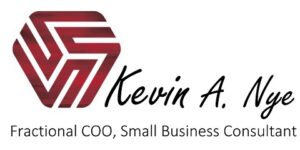As a small business owner, you’re always looking for ways to improve your operations and increase your profitability. One way to achieve this is by hiring a consultant to help you identify areas for improvement and develop strategies for growth. But do you bring in management consulting or operations consulting services? How do you know which one is right for your business?
While both are focused on improving business performance, they have different approaches and methodologies. Let’s take a closer look at the differences between management consulting and operations consulting. Next, we’ll provide some guidance on which type of consultant might be best for your small business.
Differences between Management Consulting and Operations Consulting
The main difference between management consulting and operations consulting is their focus:
Management consulting is focused on developing and implementing strategies to achieve business goals, while operations consulting is focused on improving the day-to-day operations of a business.
Another key difference is the level of involvement with senior management. Management consultants typically work with senior executives to develop strategies and implement change, while operations consultants may work with a broader range of employees to improve specific processes.
It’s also generally broader in scope than operations consulting. Management consultants may work on a wide range of projects, from developing a new business strategy to improving financial performance. Operations consultants, on the other hand, are more specialized in their approach and typically work on specific projects related to operations management.
Management Consulting
Management consulting is a broad term that refers to a wide range of services provided by consultants who specialize in business strategy, organizational design, and operational improvement. Management consultants typically work with senior executives to help them identify opportunities for growth, develop strategies to achieve their goals, and improve their overall performance.
One of the key areas of focus for management consultants is organizational design. They help businesses restructure their operations to improve efficiency, reduce costs, and increase revenue. This may involve reorganizing departments, streamlining processes, and identifying areas where technology can be used to automate tasks.
Management consultants may also help businesses with other areas such as marketing, human resources, and finance. For example, a management consultant might help a business develop a marketing strategy to reach new customers or assist with financial forecasting to improve cash flow.
Operations Consulting
Operations consulting, on the other hand, is a more specialized type of consulting that focuses specifically on improving business operations. Operations consultants work with businesses to identify and eliminate inefficiencies, reduce costs, and improve quality.
Unlike management consultants who often work at a strategic level, operations consultants are more focused on the day-to-day operations of a business. They may help businesses redesign their production processes, optimize their supply chain, or improve their inventory management.
Operations consultants may also assist with other areas such as quality control, safety, and environmental management. For example, an operations consultant might help a manufacturing business improve its quality control processes to ensure that products meet customer expectations.
Which Type of Consultant is Best for Your Small Business?
Deciding which type of consultant is best for your small business depends on your specific needs and goals. If you’re looking for help with developing a new business strategy, organizational design, or improving overall performance, then management consulting may be the best option for you.
If you’re looking for help with specific operational issues such as improving production processes, supply chain management, or inventory management, then operations consulting may be the best option.
It’s important to consider the expertise and experience of the consultant you’re considering. Look for consultants who have experience working with small businesses, and who have a track record of success in the areas where you need help.
When selecting a consultant, it’s also important to consider their approach and methodology. Some consultants may have a more hands-on approach, while others may take a more advisory role. Make sure to ask potential consultants about their approach and how they plan to work with you to achieve your goals.
Finally, it’s important to consider the cost of hiring a consultant. Management consultants and operations consultants typically charge by the hour or by the project. Make sure to get a detailed quote from potential consultants, and consider whether the cost is reasonable for the value they will provide.
Tips for Hiring a Consultant
Here are a few tips to keep in mind when hiring a consultant:
- Define your goals and objectives: Before hiring a consultant, make sure you have a clear understanding of what you want to achieve.
- Research potential consultants: Look for consultants who have experience working with small businesses, and who have a track record of success in the areas where you need help.
- Get a detailed quote: Make sure to get a detailed quote from potential consultants, and consider whether the cost is reasonable for the value they will provide.
- Consider the consultant’s approach and methodology: Make sure to ask potential consultants about their approach and how they plan to work with you to achieve your goals.
- Communicate clearly: Once you’ve hired a consultant, make sure to communicate your goals and expectations clearly. This will help ensure that the consultant is able to deliver the results you’re looking for.
Conclusion
Management consulting and operations consulting are both valuable tools for small businesses looking to improve their performance. While they have different approaches and methodologies, both types of consulting can help businesses identify areas for improvement and develop strategies for growth.
When deciding which type of consultant is best for your business, it’s important to consider your specific needs and goals, as well as the expertise and experience of the consultant you’re considering. By following these tips and guidelines, you can find a consultant who can help your small business achieve its full potential.


